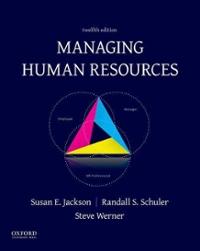Question
Question 1. There are 5 competing petrol station over a 100 mile stretch of road (Shell, BP, Texaco, Esso, and Gulf), each setting their price
Question 1. There are 5 competing petrol station over a 100 mile stretch of road (Shell, BP, Texaco, Esso, and Gulf), each setting their price for unleaded petrol daily. The managers of these stations tacitly colluding to set a higher price for unleaded petrol. As the quality of the unleaded petrol is identical, they know that any station that undercuts will win the market.
The stations estimate that the daily demand for petrol on this road is Q = 50,000 - 20,000P, where P denotes the price per litre of unleaded petrol and Q is litres of unleaded petrol. The marginal cost of providing petrol is 1 per litre for all firms.
- If all the stations were to interact only once (compete on one day only), what price would you expect to prevail for unleaded petrol along the stretch of road? Explain your answer.
- Compute the price that would be charged for unleaded petrol if the market were a monopoly. How many litres of petrol would the monopolist sell daily and what profits would he make?
- Now suppose stations interact indefinitely. They wish to collude to price unleaded petrol at the monopoly level. Suppose station managers have a discount factor = 0.7. There is an understanding that if any petrol station undercuts, the rest will punish by reverting to the price set in (a) forever. Is collusion sustainable amongst the 5 stations? What is the maximum number of stations that could sustain collusion?
- Imagine now there is a newcomer, Lux Gas, whose marginal cost of petrol is $30. How do the answers of a) and b) change?
Step by Step Solution
There are 3 Steps involved in it
Step: 1

Get Instant Access to Expert-Tailored Solutions
See step-by-step solutions with expert insights and AI powered tools for academic success
Step: 2

Step: 3

Ace Your Homework with AI
Get the answers you need in no time with our AI-driven, step-by-step assistance
Get Started


